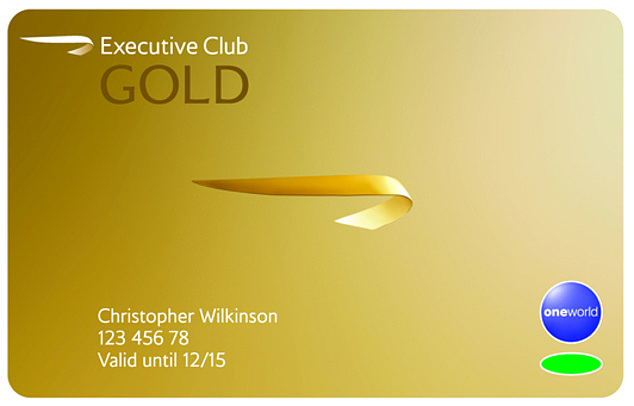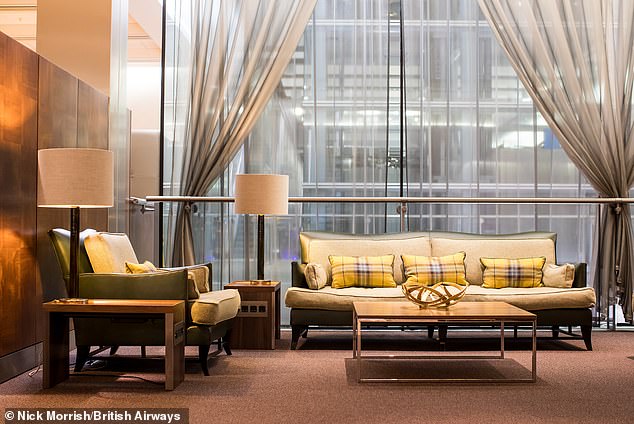The ultimate guide to British Airways’ controversial new loyalty program – and everything you need to do to earn coveted gold status
Frequent flyers were not slow to criticize British Airways’ announcement last week that it would drastically change its loyalty program from April 1.
Simply put, passengers no longer receive points for the distance traveled, but for the amount they spend. This in turn means that it will be much more difficult to achieve the coveted BA gold flyer status.
This gives privileges such as airport lounge access, priority seat booking and boarding, plus additional baggage allowance. Likewise, it will also be much more difficult to achieve silver or bronze status.
Outraged travelers took to X, formerly Twitter, to criticize the measure, which they said would “no longer reward loyalty” and drive them into the arms of rival airlines.
“BA is essentially washing its hands of the leisure market and will do everything it can to attract the dwindling group of full-fare business travelers,” says Rob Burgess on travel website Head For Points.
Here we explain exactly how the loyalty program works, what the new rules mean for you and how you can still save money on your family flights.
Shake-up: From April 1, British Airways will no longer award points for the distance flown, but rather for the amount they spend – meaning it will be much harder to achieve BA Gold Flyer status
What exactly is BA’s loyalty system?
Membership of the British Airways Executive Club, which will be renamed The British Airways Club from April 1, gives passengers privileges corresponding to four different levels: blue, bronze, silver and gold.
Anyone can become a member for free and that makes sense, because even the blue entry level gives you free internet on board. If you reach bronze, you can choose your seat a week before departure, with preferential check-in and priority boarding.
Silver members get coveted lounge access, extra baggage allowance and the ability to choose their seat when they book. And gold members receive additional benefits, such as use of Heathrow Terminal 5’s Concorde Room lounge.
How do you get through levels?
You earn tier points when you fly with BA or one of its Oneworld airline partners. Oneworld is one of three major global airline alliances where you can earn privileges and rewards within its member network, including Cathay Pacific and Qatar Airways.
Tier points are different from Avios, a rewards currency you can spend on flights, hotel rooms, supermarkets and car rentals. Tier points cannot be spent but determine your status when flying with BA and its Oneworld airline partners.

Levels: The loyalty program gives passengers privileges corresponding to four different levels: blue, bronze, silver and gold
How do you earn level points?
Under the old system you could earn tier points depending on the distance of your flight and your fare class. With the new schedule, it’s how much you spend, rather than the distance flown, that earns tier points.
One tier point is the equivalent of £1 on the price of your ticket (excluding taxes such as air passenger tax).
If you spend extra money on seat selection for a flight and booking extra baggage, you also qualify for points. Non-airline taxes and fees, such as airport fees and taxes, do not earn tier points.
Under the old scheme, bronze could be achieved with 300 level points (soon to be 3,500), silver with 600 (7,500) and gold was more achievable with 1,500 level points – but will soon require 20,000 level points.
For example, a flexible economy return fare to New York this week costs £366 plus taxes and will earn you 70 points for the 3,461-mile flight.
Under the new scheme you would earn 366 – the same as the ticket price minus taxes. Level points are only valid for one year, so you must start collecting them every year.
Who wins under the new system?
The clear winners are business travelers whose companies don’t hesitate to cover the cost of business class fares.
Rhys Jones, aviation editor of Head For Points, says most families and holidaymakers will find it difficult to get above bronze status without spending thousands of pounds on a British Airways Holidays package.
“More and more luxury holiday travelers are looking at the numbers and seeing that there is no real reason to fly BA anymore,” he adds.

Luxury: Gold members receive additional benefits such as use of Heathrow Terminal 5’s Concorde Room lounge
How can I earn more points?
British Airways Holidays packages also offer tier points that are distributed evenly among the people on your booking (toddlers and young people cannot earn tier points!).
There are 26,000 listed on the website from £200 per person.
For every euro spent you will receive a level point plus Avios points.
For example, if you book a flight and hotel for two people to Barcelona for €1,000, you and the other passenger will each receive 500 tier points plus Avios points. Anyone who books will also receive 1,000 bonus Avios points.
Any tips for cheaper flights?
If you use your Avios points to reduce the cost of a flight, you will still get the full flight fare with tier points.
For example, a return economy flight in August from Gatwick to Catania in Sicily would normally cost £401 per person, but using 65,000 Avios each would cost £145.07.
You are still eligible for 395 tier points (excluding taxes) and if you book before February 15, you will receive 100 bonus tier points.
What if I book before April 1?
BA is at pains to point out that customers who have already booked will not suffer any loss if their tier points are converted from the old to the new system.
It also announced that it is offering bonus level points
for bookings made before February 14 for travel from April 1, based on travel class. However, because these only range from 50 for Euro travelers to 330 for the first traveler, they are a symbolic offer.
Can I go from gold to blue?
Not right away. Someone with gold status who did not earn tier points as of April 1 would go to silver in the first year and bronze in the second, before reaching blue in the third year.
Some links in this article may be affiliate links. If you click on it, we may earn a small commission. That helps us fund This Is Money and keep it free to use. We do not write articles to promote products. We do not allow a commercial relationship to compromise our editorial independence.

